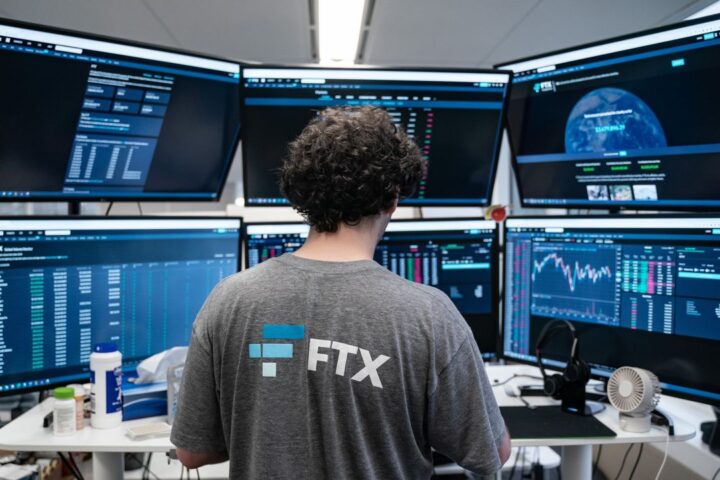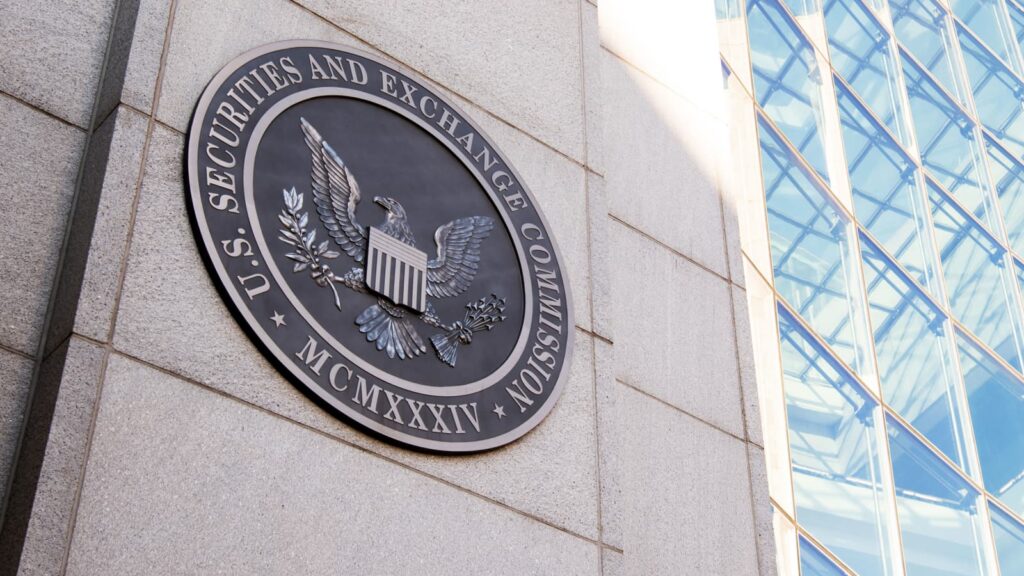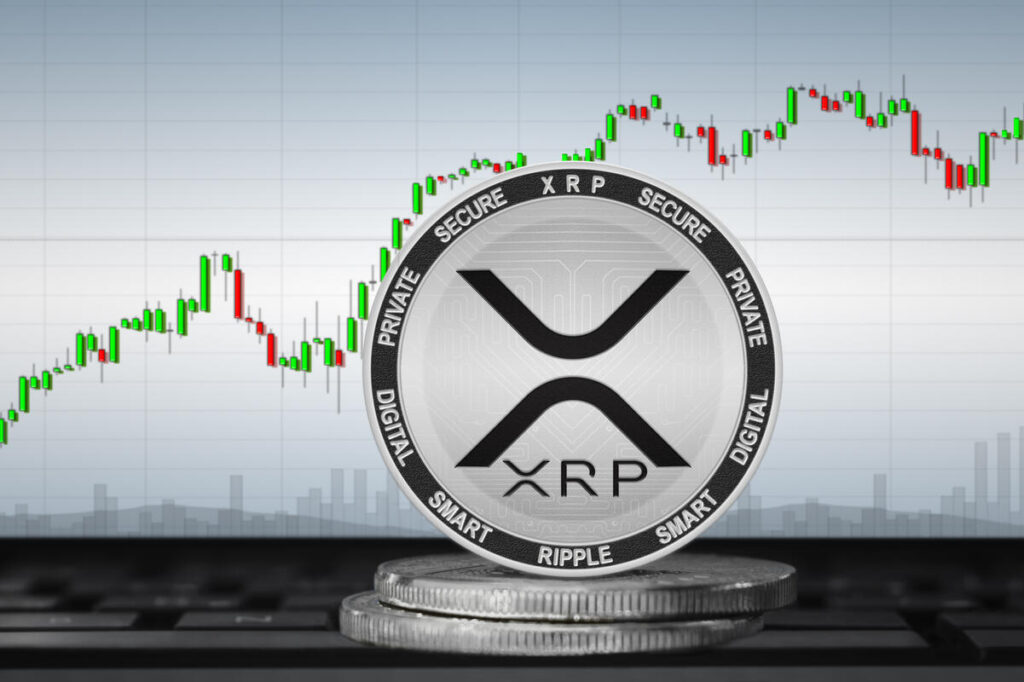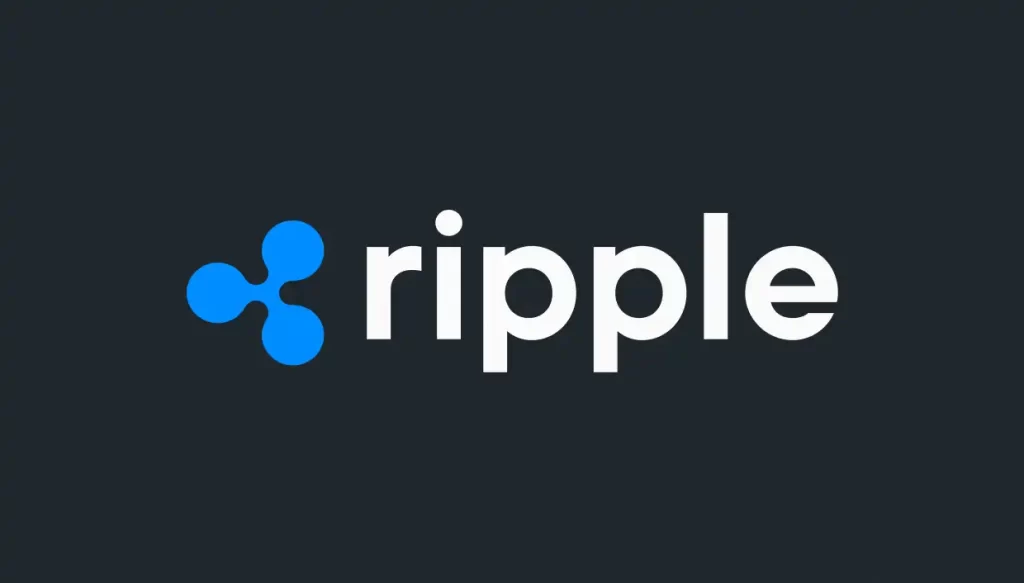The Eighth Judicial District Court of Nevada has approved a request from the state’s Financial Institutions Division (NFID) to place cryptocurrency custodian Prime Trust under receivership until a hearing can be held to determine the reasons behind the petition.
On July 14, the Nevada court issued an order appointing a receiver for Prime Trust, following a petition filed by the state financial regulator on June 26.
Prime Trust will have an opportunity to present its case against the petition during a hearing scheduled for August 22.
According to the NFID, the court-appointed receiver will assume control of Prime Trust’s day-to-day operations to identify the best course of action to safeguard the interests of the company’s clients.
The court order explicitly restricts Prime Trust’s employees and executives from taking actions that would interfere with the court’s decision.
Court documents indicate that Prime Trust consented to the receivership petition brought forth by the Financial Institutions Division, citing a significant discrepancy between the company’s assets and liabilities.
READ MORE: Is Big Eyes Coin a scam? Why investors should be wary of this crypto presale
The Nevada financial regulator had urgently requested the appointment of a receiver due to concerns about the potential for irreparable harm to users, the public, and the overall confidence in the cryptocurrency market.
The Financial Institutions Division had previously issued a cease-and-desist order to Prime Trust on June 21, stating that the company was unable to fulfill customer withdrawal requests.
As stated in the petition filed on June 26, Prime Trust owed its clients more than $85 million in fiat currency and $69.5 million in cryptocurrency.
However, the firm reportedly held only around $2.9 million in fiat currency and $68.6 million in cryptocurrency.
Prior to encountering financial difficulties, Prime Trust had been in discussions with BitGo, a provider of wallet infrastructure and digital asset custody services, regarding a potential acquisition.
However, on June 22, shortly after the NFID issued the cease-and-desist order, BitGo officially called off the deal.
The court’s decision to place Prime Trust under receivership signifies a significant development in the ongoing situation, as it allows for an impartial assessment of the company’s financial state and potential actions to protect the interests of its clients.
The upcoming hearing will provide an opportunity for Prime Trust to present its arguments and potentially address the concerns raised by the Financial Institutions Division.
Other Stories:
PEPE Coin in Trouble? Financial Regulator Clamps Down On Crypto Memes
SEC Chair Gary Gensler Advocates Greater Use of Artificial Intelligence for Market Surveillance
Celo Blockchain Plans Transition to Ethereum Layer-2 Solution
The CEO of Haun Ventures, Katie Haun, a former federal prosecutor turned chief executive of a crypto-focused venture capital fund, expressed her surprise at the possibility of an immediate appeal from the United States Securities and Exchange Commission (SEC) regarding the Ripple case ruling.
Haun believes that the SEC benefits from the lack of legal clarity in the current situation.
On July 13, Judge Analisa Torres granted a partial summary judgment in favor of Ripple Labs, determining that XRP is not a security.
While some commentators speculated that the SEC might appeal the decision, Haun took to Twitter on July 15 to explain her skepticism about an immediate appeal.
She stated that the SEC likely wants to maintain the current confusion as it works in their favor, and losing on appeal could put their future enforcement actions at risk.
Haun’s perspective is supported by Ripple Labs CEO Brad Garlinghouse, who also believes that it will take several years before the SEC decides to lodge an appeal.
READ MORE: Synthetix Expands DeFi Offering with Introduction of Infinex Derivatives Exchange
Garlinghouse further suggested that an appeal from the SEC would only reinforce Judge Torres’ decision that XRP is not a security.
Jeremy Hogan, a U.S. lawyer and Ripple commentator, shared his belief that the SEC might launch an appeal after the scheduled trial between the SEC and Ripple concludes in early 2024.
The SEC is currently involved in lawsuits against prominent crypto exchanges Binance and Coinbase for alleged securities law violations.
The recent ruling in the Ripple case, while not a binding precedent, could potentially influence the outcomes of these cases.
In response to the ruling and the resulting confusion, many crypto commentators and lawmakers are urging Congress to provide legal clarity for the cryptocurrency industry.
Brian Quintenz, the former commissioner of the Commodity Futures Trading Commission and head of policy for crypto venture capital fund a16z, argued that the Ripple court ruling only adds to the existing uncertainty faced by entrepreneurs and builders in the crypto space.
U.S. Senator Cynthia Lummis emphasized the urgent need for Congress to establish a clear and comprehensive regulatory framework for the cryptocurrency industry, highlighting the significance of the recent ruling.
Other Stories:
Eeon Intervenes in SEC Lawsuit Against Binance, Seeks Representation for Customers
Investor Spends $1.04 Million on PEPE Coin as Ripple CEO Criticizes SEC in Landmark Case
ARK Invest Sells More Coinbase Shares, Expands Investments in Meta Platforms and Robinhood
XRP (XRP) has experienced a significant surge in price following a recent federal court ruling that deemed its sales on cryptocurrency exchanges compliant with United States securities laws.
On July 14, the XRP price encountered a minor setback, dropping by approximately 10% to $0.76. Nevertheless, it still maintained a notable 65% increase compared to the previous day’s lowest price.
During the past 24 hours, the XRP/USD pair reached its highest level at $0.93, marking its strongest performance since December 2021, coming close to breaching the $1 mark.
Analysis suggests that the ongoing surge in XRP’s price may not be a mere short-term reaction to the positive news regarding Ripple.
Several indicators point to the involvement of significant players in driving this rally. Notably, the duration of XRP’s substantial price increase coincides with a 10-month high in trading volumes.
Additionally, the number of XRP whale transactions, involving wallets holding over $100,000, has reached its peak in 2023, indicating support from wealthy investors.
READ MORE: Bitcoin Long-Term Holders Return as BTC Price Surges
The fact that whales have been accumulating XRP rather than selling during this rally suggests their intent to position themselves for further gains.
Entities holding a balance of 100,000 to 10 million XRP tokens have seen an increase in supply, further bolstering this notion.
While XRP may test the crucial $1 level in the coming days from a technical perspective, the likelihood of its rally extending beyond that appears weak at present.
The pullback experienced on July 14 coincided with a resistance confluence formed by a long-term horizontal trendline and a descending trendline ceiling.
Furthermore, the weekly relative strength index (RSI) for XRP has entered overbought territory, increasing the possibility of a correction.
In the event of a pullback, the XRP price could decline towards its ascending trendline support near $0.45 by September, representing a 55% decrease from the current price level.
Alternatively, an overbought RSI could result in the XRP price consolidating within the $0.75–$1 range.
If the XRP price successfully surpasses the $1 mark, its next target by September is likely to be around $1.35, a resistance level observed during the August to December 2021 period.
Other Stories:
SHIB Coin Prediction: Will Shiba Inu Coin Reach $1?
Bitcoin (BTC) long-term holders are reemerging as the price of BTC continues to climb, according to the latest analysis.
On July 13, Philip Swift, the creator of on-chain data resource LookIntoBitcoin, highlighted the classic behavior of “older” BTC investors during bull markets.
Despite the ongoing debate about how high BTC’s price could ultimately reach in this current cycle, one thing remains clear: Hodler behavior remains consistent.
The increase in BTC/USD, which has more than doubled in 2023, has resulted in an uptick in on-chain spending velocity, indicating profit-taking activities.
Swift shared a chart of the Value Days Destroyed (VDD) Multiple, a metric based on the Coin Days Destroyed (CDD) indicator.
The VDD measures the inactivity period each time BTC moves on-chain and compares it to the current BTC price, providing a 30-day result compared to the 365-day average.
READ MORE: Ripple’s XRP Victory Against SEC: A Blow to Regulator’s ‘War on Crypto’
The chart shows that the current cycle aligns closely with previous cycles in terms of on-chain spending volume, indicating where we are in the current market cycle.
Swift explains that the VDD Multiple highlights when older coins begin entering the market for sale as long-term participants seek to capitalize on the price increase during major bull market cycles.
The VDD Multiple currently stands at 1.32, just below its peak of 1.37 in April 2023. Swift sees this as a sign of the “1st stage bull market.”
Checkmate, the lead on-chain analyst at Glassnode, praised the findings, emphasizing the remarkable consistency of market cycles and human reactions to similar stimuli.
Moreover, data from Glassnode highlights the temptation for hodlers to cash out at current prices. Bitcoin’s market-value-to-realized-value (MVRV) ratio for long-term holders (LTHs) and short-term holders (STHs) indicates that both groups are significantly in profit.
LTH coins, defined as dormant for at least 155 days, are now worth 1.52 times more than when they were last moved, while STH coins show a value increase of 1.12.
Previous reports have already highlighted the influence that STHs have on BTC price action.
With both long-term and short-term holders in profitable positions, it remains to be seen how these trends will impact BTC’s price movement going forward.
The consistent behavior of BTC hodlers in response to market conditions suggests that this cycle is following a similar pattern to previous ones.
Other Stories:
Monochrome Asset Management Proposes Bitcoin ETF on ASX
Worldcoin’s World ID Project Surpasses 2 Million Users
OpenAI Faces FTC Investigation Over Privacy and Data Practices
Ripple’s XRP cryptocurrency has experienced a significant surge, becoming the fourth largest cryptocurrency by market capitalization.
This came after Ripple Labs achieved a partial victory over the Securities and Exchange Commission (SEC) on July 13.
Following the court ruling, XRP’s market cap skyrocketed by an impressive $21.2 billion, reaching a new yearly high of $46.1 billion.
This surge propelled XRP from the seventh position to surpass Circle’s USD Coin (USDC) and Binance’s BNB token, securing its place as the fourth largest cryptocurrency.
However, as of now, Ripple’s market capitalization has settled at $42.5 billion.
The substantial growth in Ripple’s market capitalization can be attributed to the favorable court ruling. The District Court for the Southern District of New York determined that the sale and offer of XRP on digital asset exchanges did not constitute the sale of investment contracts.
This legal case involved Ripple Labs and the SEC.
READ MORE: Elon Musk Launches xAI: A New Venture to Unravel the Mysteries of the Universe
Simultaneously, the price of XRP experienced a sharp increase of up to 98% immediately following the court decision, with prices reaching as high as $0.93 according to TradingView data.
The sudden surge in demand for XRP was so intense that it caused disruptions for Uphold, a U.S.-based cryptocurrency exchange.
Uphold faced technical difficulties and went down temporarily due to an unprecedented spike in trading volume.
Uphold was among the few larger U.S. exchanges that continued to offer XRP sales, as others chose to delist the cryptocurrency.
In response to the court ruling, major U.S. exchanges such as Coinbase, Kraken, and iTrustCapital have initiated the process of re-listing XRP, allowing users to trade the cryptocurrency on their platforms.
Additionally, Gemini, a crypto exchange owned by the Winklevoss twins, has hinted at relisting XRP in the near future.
Overall, Ripple’s XRP has experienced a significant boost in market capitalization and price following the recent court ruling in its favor.
This outcome has not only solidified its position as the fourth largest cryptocurrency but has also prompted a renewed interest from prominent U.S. exchanges to list XRP on their platforms.
Other Stories:
United States DoJ Moves $299 Million Worth of Bitcoin in Recent Transactions
Bitcoin ETF Approval Could Act as Government’s ‘Seal of Approval’
PwC recently published its fifth annual global crypto hedge fund report on July 12, which was based on surveys conducted in the first quarter of 2023 among both crypto-native and traditional hedge funds.
Despite the recent crypto winter and ongoing regulatory uncertainties, the report revealed a predominantly positive outlook among the funds.
According to the report, crypto-native hedge funds are actively working towards rebuilding confidence and ensuring their needs are heard.
An overwhelming majority of these funds (93%) expect the market cap to rise over the course of the year. Interestingly, more than half of them (53%) reported no exposure to FTX or the Terra Luna ecosystem.
The report also highlighted that most of the funds performed better than the price of Bitcoin (BTC), which stood at $30,553 in 2022.
This finding emphasizes the popularity of crypto hedge funds as investment vehicles for those seeking exposure to the crypto-asset market.
READ MORE: US Senate Committee Seeks Input on Taxation of Digital Assets
While over half of the funds (54%) operate in the United States, they did not respond differently from others to U.S. regulations. In fact, 42% of these funds stated that they do not expect the regulations to impact them significantly.
The report further revealed that the funds expressed a desire for trading venues to implement certain requirements, including asset segregation (75%), financial audits (62%), and an independent statement of reserve assets (60%).
The report also shed light on the limited impact of tokenization within the sector. Only 15% of the surveyed funds are considering investments in tokenized securities, and merely 4% tokenize units within their own funds.
Regarding traditional hedge funds, the proportion investing in crypto decreased from 37% in 2022 to 29% in 2023.
Among those still investing in crypto, 62% allocate less than 5% of their assets under management to the crypto market, while only 8% hold more than 20% in crypto.
The survey found that 46% of these funds plan to increase their crypto investments this year, a decline from 67% in the previous year. Notably, none of the respondents mentioned a decrease in their capital deployed in crypto.
For traditional funds that do not invest in crypto, “client reaction or reputational risk” has become the primary reason, surpassing “regulatory uncertainty.”
Moreover, 40% of these funds stated that the removal of regulatory barriers would not motivate them to begin investing in crypto.
The survey was conducted in collaboration with CoinShares, an alternative asset manager, with 131 crypto-native funds participating. Data from 59 traditional hedge funds was obtained by the Alternative Investment Management Association.
In a recent incident, a hacker exploited a code vulnerability in the noncustodial decentralized finance (DeFi) protocol Arcadia Finance, draining approximately $455,000 from the platform.
PeckShield, a blockchain investigator, identified the cause of the hack as the absence of untrusted input validation in the code.
The hacker took advantage of this vulnerability, which allowed them to siphon funds from the Ethereum (darcWETH) and Optimism (darcUSDC) vaults.
READ MORE: Digital Currency Group Dismisses Gemini Lawsuit as “Publicity Stunt” by Winklevoss Twins
Arcadia Finance has not yet provided a comment on the hack in response to inquiries made by Cointelegraph.
However, the team did mention that PeckShield’s assessment of the root cause was incorrect.
Nevertheless, Arcadia Finance acknowledged the hack and took immediate action by pausing the contracts to prevent further loss of funds.
While investigations are ongoing, it has been discovered that Arcadia’s code contains another vulnerability that could potentially have catastrophic consequences if exploited.
PeckShield revealed that there is a lack of reentrancy protection, which enables instant liquidation to bypass the internal vault health check.
The majority of the stolen funds, approximately 180 Ether (ETH) equivalent to $1,864 at the time, were from Optimism and have been laundered through Tornado Cash.
However, the stolen tokens on the Ethereum network, valued at over $103,000, are still held in the suspected wallet address.
In the second quarter of 2023, the crypto space experienced a series of hacks and exploits, resulting in a cumulative loss of more than $300 million.
CertiK, a blockchain security company, reported a total of 212 security incidents during this period, which led to a loss of $313,566,528 from various Web3 protocols.
Comparing the data with the same period in the previous year, CertiK observed a decline of 58% in crypto hacks. Among the incidents, the BNB Smart Chain had the highest number, with 119 recorded cases amounting to losses of $70,711,385.
To commemorate this significant moment in history and show support for independent journalism in the crypto space, readers have the opportunity to collect this article as an NFT (Non-Fungible Token).
In a significant ruling, a Canadian judge has declared that the popular thumbs-up emoji can serve as an indication of a person’s legal agreement to a contract.
The decision comes in response to the increasing prevalence of emojis as a means of expression in various contexts, including business transactions, within Canadian society.
The case in question revolved around a dispute between a farmer and a grain buyer regarding the sale of large quantities of flax in 2021.
READ MORE: Digital Currency Group Dismisses Gemini Lawsuit as “Publicity Stunt” by Winklevoss Twins
The buyer had sent the farmer a purchase contract accompanied by a message requesting confirmation. Upon receiving the contract, the farmer replied with a thumbs-up emoji.
Interpreting this as an acceptance of the agreement, the buyer believed that the farmer had agreed to the contract.
However, the farmer contended that the emoji was merely meant to confirm receipt of the contract.
In reaching the ruling, Judge T.J. Keene took into account the established trade relationship between the farmer and the buyer, along with the farmer’s past responses to similar sales agreements, which often included phrases like “looks good,” “ok,” or “yup.”
Judge Keene also referred to the definition of the thumbs-up emoji as found on dictionary.com, which described it as conveying assent, approval, or encouragement in digital communications, particularly in Western cultures.
Legal experts, such as Eric Goldman, a law professor at Santa Clara University School of Law, emphasized that despite this ruling, the interpretation of the thumbs-up emoji’s meaning may still vary depending on the specific circumstances of each case.
Goldman highlighted that some young individuals might employ the emoji sarcastically or insincerely, while others might use it solely to acknowledge the receipt of a message.
Furthermore, he noted that in certain Middle Eastern countries, the gesture could be deemed offensive.
Consequently, Goldman underscored the importance of recognizing that the use of the thumbs-up emoji can carry significant legal consequences.
This ruling serves as a reminder that as emojis continue to proliferate as a form of communication, their interpretation within legal contexts remains an evolving and nuanced area.
While the Canadian judgment establishes a precedent for the thumbs-up emoji, it also underscores the necessity of considering individual context and cultural factors when determining the meaning of emojis in legal agreements.
Ethereum co-founder Vitalik Buterin recently engaged in a Twitter Spaces session on July 7, where he shared his insights on new developments within the Bitcoin blockchain.
During the conversation with Bitcoin proponents Eric Wall and Udi Wertheimer, Buterin highlighted a few areas where Bitcoin could potentially learn from Ethereum developers.
Buterin commended the introduction of Bitcoin Ordinals, a layer for non-fungible tokens (NFTs), for reviving a “builder culture” on the network.
READ MORE: Elon Musk Fights Back Against $258 Billion Dogecoin Lawsuit
He viewed this development as a positive shift away from the stagnant politics in the Bitcoin ecosystem.
According to Buterin, the advent of ordinals has rekindled a sense of action and productivity among Bitcoin enthusiasts.
The Ethereum co-founder suggested that Bitcoin could expand its functionality without compromising scalability.
He specifically praised the Ordinals and the BRC-20 token standard for their potential impact. Buterin believes that these advancements serve as a pushback against the “laser-eye” Bitcoin Maxi movement, which he considers to be a positive development.
The conversation mainly focused on scalability concerns.
Eric Wall voiced his concerns about the inadequacy of the Bitcoin Lightning Network in terms of future scalability, particularly when processing medium-sized payments.
In response, Buterin recommended that developers concentrate on implementing various layer-2 solutions and seek ways to enhance the efficiency of the Bitcoin base layer.
He specifically highlighted the value of rollups and ZK-snark-based scaling solutions.
Udi Wertheimer agreed with Buterin’s suggestions and emphasized the potential benefits of introducing zero-knowledge rollups to the Bitcoin network.
He argued that adopting rollups would not only improve scalability but also enable the execution of smart contracts.
Notably, Eric Wall and Udi Wertheimer are leading figures behind the Ordinals project called Taproot Wizards.
Their advocacy for increased functionality in the Bitcoin network has garnered criticism from Bitcoin fundamentalists who argue that smart contracts and NFTs dilute Bitcoin’s primary peer-to-peer cash functionality.
Among the critics is Samson Mow, CEO of Jan3, who considers Ordinals to be a waste of block space that could otherwise be used for Bitcoin payments.
Responding to the criticism, Wall explained that Bitcoin could serve as a proof system for zero-knowledge proofs, alleviating concerns about network congestion.
He expressed the perspective that Bitcoiners have always desired to explore DeFi adjacent ventures while relying on the Bitcoin base layer as a judge or arbiter of computation, rather than performing the computation on-chain.
Wall further highlighted that second layers could serve purposes beyond payments.
Unsurprisingly, this discussion has stirred controversy within the Bitcoin community. Udi Wertheimer criticized Samson Mow and Adam Back, CEO of Blockstream, for opposing the conversation with Buterin.
In a tweet, Wertheimer referred to them as “laser-eyed clowns” who have allegedly failed to produce a successful product despite leading Blockstream for a decade.
He questioned their reluctance to learn from Ethereum’s experiences.
Independent blockchain investigator ZachXBT’s investigative efforts have played a crucial role in a class-action lawsuit filed in Canada against Boneheads, an alleged NFT rug pull amounting to $3.1 million.
On July 7, ZachXBT tweeted about the lawsuit, reiterating accusations that the Boneheads team vanished quickly and misused the minted funds on Bored Ape Yacht Club NFTs, luxury items, and other undisclosed purchases, failing to fulfill their promised roadmap.
ZachXBT expressed satisfaction that his research had once again been cited in a legal case.
The class-action lawsuit was initially lodged in mid-June in the Ontario Superior Court of Justice. The statement of claim, filed on June 19, accuses the Boneheads team of breaching their contract with investors by not delivering on the project’s roadmap, misappropriating funds, engaging in fraudulent and negligent misrepresentation, and other offenses.
READ MORE: Former BitMEX CEO Says Bitcoin Will Reach $760,000 as Currency of Artificial Intelligence
The filing emphasizes that none of the promised deliverables, including NFT airdrops, tokens, physical collectibles, marketplace access, forging, avatar applications, voting rights, giveaways, or other commitments, were fulfilled by the Boneheads NFT team.
ZachXBT’s contributions are referenced in the lawsuit, highlighting his investigation into the Boneheads project, which he shared on Twitter on July 14, 2022, along with subsequent posts in the following month.
In his initial Twitter thread, ZachXBT outlined how the project allegedly misused funds intended for supporting the Boneheads roadmap.
He also identified the key individuals involved in the project and documented their questionable actions.
Despite months of social media inactivity, the Boneheads team promptly responded to ZachXBT’s posts on Twitter, denying any scam allegations and attributing the project’s slow progress to a deliberate and creative process.
They also announced the release of a new collection called “21” on the project’s anniversary in August 2022, but no such collection ever materialized.
ZachXBT’s investigative work has now been instrumental in multiple cases targeting bad actors in the NFT space.
In February, the FBI seized 86.5 Ether and $100,000 worth of NFTs from a phishing scammer following an extensive investigation conducted by ZachXBT.
Additionally, in October 2022, France’s national cyber unit credited ZachXBT’s work in aiding their efforts to apprehend and charge a group of suspected phishing scammers who had allegedly stolen $2.5 million worth of NFTs.
ZachXBT’s ongoing commitment to investigating fraudulent activities within the blockchain and NFT sectors has proven invaluable in uncovering wrongdoing and holding accountable those responsible for defrauding investors and participants in these markets.












